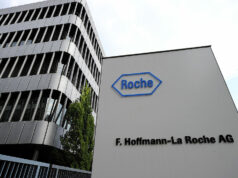
Immune checkpoint inhibition stands out as one of the most promising approaches to the treatment of numerous cancers. But while PD-1, PD-L1 and CTLA4 have seen the most progress, with numerous drugs already on the market, another target that has been moving through the clinic lately is CD47.
Brisbane, California-based Arch Oncology said Monday that it had raised $50 million in a Series B funding round that it will use to fund Phase I development of its CD47-targeting monoclonal antibody, AO-176. Last month, Arch initiated a Phase I trial of the drug in solid tumors. According to the ClinicalTrials.gov database, the trial will enroll 90 patients.
The financing was led by a new investor, Lightchain – the family office of Scottrade founder and former CEO Rodger Riney – with participation from existing investors RiverVest Venture Partners, Roche Venture Fund and 3×5 Partners.
Another company that has been developing an anti-CD47 monoclonal antibody is Menlo Park, California-based Forty Seven, which is publicly traded on the Nasdaq, and whose pipeline illustrates the potential versatility of CD47 as a therapeutic target. Forty Seven’s drug candidate, Hu5F9-G4, is in Phase II trials for non-Hodgkin’s lymphoma and colorectal cancer, respectively in combination with Roche’s Rituxan (rituximab) and Eli Lilly & Co.’s Erbitux (cetuximab). It is also in Phase I development as a monotherapy in ovarian cancer and other solid tumors; in combination with Celgene’s Vidaza (azacitidine) in acute myeloid leukemia; and in ovarian cancer, combined with Pfizer’s PD-L1 inhibitor, Bavencio (avelumab).
A paper this month in the journal Scientific Reports by researchers at Fuzhou University in China showed that dual blockage of PD-L1 and CD47 – basically, what Forty Seven’s aforementioned ovarian cancer study is doing – enhances immunotherapy against tumor cells. The paper described the way the targets help cancers evade the immune system as telling it “don’t find me” and “don’t eat me.” Essentially, CD47 works by binding to another protein, known as SIRP-alpha, and keeps immune cells from destroying cancer cells.
Consequently, there is also an interest among developers of CD47-targeting antibodies in combining CD47 inhibition with SIRP-alpha inhibition. Forty Seven and Arch both have SIRP-alpha inhibitors in preclinical development. A March 2017 paper by British and Dutch researchers in the journal Immunological Reviews indicating that the CD47-SIRP-alpha axis represented a promising innate immune checkpoint.
Photo: nopparit, Getty Images








